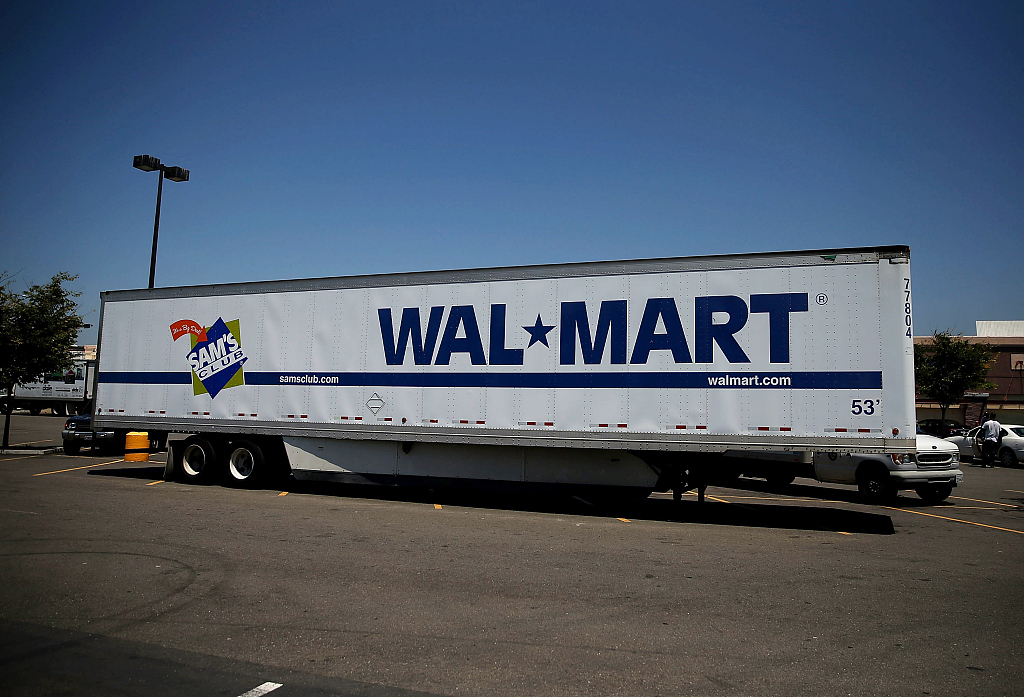

Editor's Note: Tom Fowdy is a British political and international relations analyst and a graduate of Durham and Oxford universities. He writes on topics pertaining to China, the DPRK, Britain and the United States. This article reflects the author's opinion and not necessarily the views of CGTN.
On Friday, over 600 American companies, including retail giants WalMart, Target and Gap, wrote a letter to U.S. President Donald Trump requesting that he drop the trade war with China and end tariffs on imports immediately. The language of the letter was not ambiguous. It stated clearly, "We know firsthand that the additional tariffs will have a significant, negative and long-term impact on American businesses, farmers, families and the U.S. economy."
On the matter of U.S. trade concerns with China, the document further detailed that the companies "believe this goal can be achieved without taxing Americans" and that "tariffs are taxes paid directly by U.S. companies— not China," directly hitting out at the president's repeatedly false claim that the U.S. was making money out of its levies on Beijing. Finally, the communication urged him to seek a strong deal with China that would improve U.S. competitiveness.

A WalMart truck trailer sits in San Leandro, California, the U.S., June 11, 2015. /VCG Photo
The letter is the latest indication that Trump's trade war with China will not fulfill its intended goals and comes amid his threat to increase tariffs if Beijing does not negotiate to his liking. It is a solemn reminder of all the president's justifications for his initiative: that companies can simply "move elsewhere" or "back to the U.S." are not serious alternatives and cannot offset rising costs in the long run.
However, despite the growing warnings, the president is unlikely to change course so easily. Stubborn bipartisan support for his China policy continues to shield the White House from the political scrutiny it deserves. Thus by the time the impact hits home, it may be too late.
WalMart is an icon of everyday American consumerism. It is known around the world for its mega-sized shopping centers which sell everything. One might have to seriously question what cannot be bought at WalMart. Many raise their eyebrows at the fact that you can put guns in your shopping cart there and put them through the checkout like grocery.
So when the CEO of this company signs a letter to Donald Trump setting out that the trade war on China will harm his business, you know it is serious. The company imports an enormous range of everyday and consumer items from China. It is the U.S. businesses that are going to be paying for the ever increasing levies forced through by the White House, not "the Chinese."
Changing suppliers is an option, but it is not a short term one. Chinese suppliers remain the best option because their mass production and export prices are undeniably cheaper, the very aspect which has empowered the success of WalMart and others.
To change course requires not only serious investment in somewhere new but also considerably less demand, which would affect any financial gain acquired through avoiding tariffs in the first place. Thus, businesses are stuck; the cost of tariffs will hit them regardless of what the president misleads the public with. Prices will rise.

Signs advertise the closure of a Sears store in Chicago, Illinois, the U.S., May 3, 2018. /VCG Photo
With such serious and legitimate warnings, will Trump change course? There is concern that he won't. He believes the weaponization of tariffs is working in getting what he wants, citing Mexico as an example. However, what is more alarming is that while his trade war with China is receiving corporate scrutiny, it is not receiving political scrutiny. No mainstream U.S. politicians are speaking out against the trade war, none in either party. The "China threat" narrative rules supreme.
When the president sought to tariff everything from Mexico, there was a bipartisan outcry and an immediate presentation of the damage it would do to American businesses. With China these corporate voices are being ignored in favor of Cold War hysteria.
Trump is being allowed to push forward extremely irrational and unreasonable moves that pose risks to America's economy without a particle of criticism. It is all a bit odd given that this is an administration that on every other issue is scathingly criticized, and there is even talk of impeachment.
So, although major U.S. retail and consumer businesses have raised the alarm, there is still a risk that these warnings could fall on deaf ears. But either way, the 600 firms are not lying, nor are they exaggerating; the China-U.S. trade war poses genuine risks for them. They are the ones who will pay. Contrary to Trump's claims, there are no quick fix solutions for firms relying on deeply integrated and cost-effective supply chains. This is not something that can be brushed under the carpet forever.
(If you want to contribute and have specific expertise, please contact us at opinions@cgtn.com.)

Copyright © 2018 CGTN. Beijing ICP prepared NO.16065310-3
Copyright © 2018 CGTN. Beijing ICP prepared NO.16065310-3